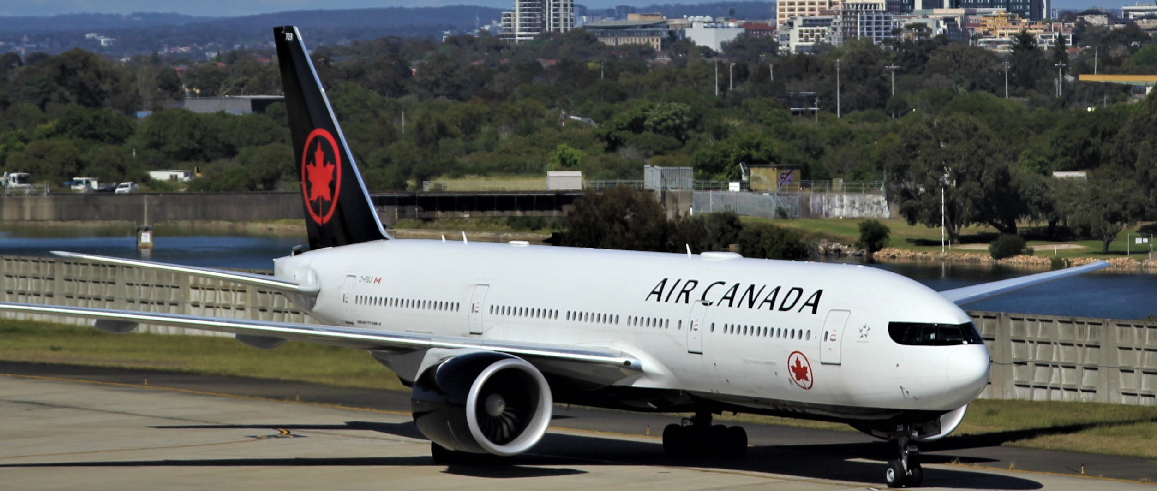Canada Birthright Citizenship: How to Get Citizenship by Birth or Descent
There are two ways you can become a Canadian by birth; if you were born in Canada, even if none of your parents are Canadian, and if you were born outside of Canada, but one of your parents is Canadian.
Children born outside Canada to Canadian parents may be entitled to Canadian citizenship, depending on the circumstances surrounding their birth and their parents’ birth.
If you fall into that category and are unclear about your citizenship status, you can reach out to us in person, online, or via phone on 03334149244 to assist you. We are among the top-rated immigration lawyers that can help with your situation. We are IAS, the reliable, affordable UK immigration lawyers you need.
Read our 1001 reviews
Request a call back from our immigration experts
Benefits of Choosing IAS‘ Canada Immigration Lawyers
When it comes to obtaining a Canada visa or permit, IAS Canada immigration lawyers are well-equipped to help you.
With IAS’ track record of successfully helping clients visit or immigrate to Canada successfully, we can help you achieve your goal.
Our dedicated immigration lawyers provide our services through a comprehensive and personalised approach. With IAS, you enjoy:

Compassionate support from an experienced immigration lawyer dedicated to your success



Support in gathering supporting documents and completing a high-quality application.



Confidence that your case is being handled by an experienced team.



In-house document checks done by lawyers who are well-versed in immigration matters.
Services we Provide
Who is a Canadian Citizen by Birth or Descent?
A Canadian citizen enjoys citizenship rights from the Canadian government by birth, descent, or naturalization. Anyone born in a Canadian territory is regarded as a Canadian citizen, regardless of the descent or status of their parents.
Being a Canadian citizen means the child can travel in and out of Canada when they are of age without a visa. If they decide to stay in Canada, it does not affect the parents’ process of gaining permanent residency or citizenship.
By descent, children born in the first generation to a Canadian parent outside Canada are considered Canadian citizens. Later generations may be entitled to Canadian citizenship by birth under certain conditions.
Foreigners can also become Canadian citizens by naturalization. Permanent residents may be able to become citizens after staying in Canada for a minimum of three years and meeting specific requirements.


Does Canada Have Birthright Citizenship? Understanding Citizenship for Children Born in Canada
Jus soli is a Latin phrase that translates directly to the right of soil and is the basis for Canadian citizenship by birth. Under this principle, most children born in Canada are regarded as citizens. The principle applies as long as the child is born on Canadian soil, airspace, waters, and ships or aircraft registered in Canada, regardless of the parent’s nationality. If the child is born to diplomats of a foreign government and lives in Canada, they are not entitled to Canadian citizenship.
The jus soli principle is gradually being phased out. Some countries, like Malta, India, and all European countries, no longer use it. Countries like the United Kingdom, Germany, New Zealand, and France require at least one parent to be a citizen before the principle can apply. Canada and the United States are the only two members of the G7 that have unconditional birthright citizenship.
The Canadian Citizenship Act of 1946 states that anyone born in Canada has the right to automatic citizenship. The parents of the new Canadian-born child do not affect their citizenship status, whether they are Canadian citizens or not. Being a Canadian citizen means that the child has permanent residency. They are entitled to a Canadian passport and can travel anytime in and out of Canada without a visa. They can also reap social benefits and receive free education as citizens of Canada.
The parents can take the child back to their home country or stay in Canada for an extended period on a temporary visa. The child does not in any way influence the process of getting a permanent residence for the parent. If one or both of the child’s parents are foreign diplomats in Canada, then the child is not entitled to Canadian citizenship. That is the only condition wherein children born in Canada do not get citizenship status.
Children under seven years old found abandoned in Canada are assumed to have been born there and are regarded as citizens. If no contrary evidence is found, their citizenship becomes permanent after seven years of discovery.
Canadian Citizenship by Descent: Rules for Children Born Outside Canada
Before 2009, children born outside Canada who had at least one Canadian citizen as a parent were entitled to Canadian citizenship. Only the first generation of children born after 2009 to parents outside Canada are entitled to citizenship by descent. The government can only confer citizenship on the children if one or both of the parents were born in Canada or became naturalized before giving birth to the child.
Every law concerning citizenship in Canada also applies to adopted children. Legally adopted children of Canadian parents can be beneficiaries of their parents’ citizenship status if their name appears on the child’s birth certificate. This became legal in July 2020.
With the present laws guiding citizenship in Canada, only the first generation can become citizens when born outside Canada. The second or a later generation born outside Canada can enjoy citizenship by descent if their grandparents live outside Canada because they were employed in the Canadian Armed Forces, in the public service of a territory or province controlled by Canada, or are with the federal public administration. This also applies if the children were adopted and born outside Canada.


Rights and Privileges of Canadian Citizenship: Can a Permanent Resident Vote in Canada?
Birth tourism is not illegal in Canada, and foreign non-residents can come to give birth in Canada to acquire Canadian citizenship for their newborns. This is a reasonably widespread phenomenon because of the rights and privileges enjoyed by Canadian citizens. Some of the privileges include:
- Canadian-born children are not restricted from entering and staying in Canada for as long as they want. They cannot be deported from Canada as they are already Canadian citizens.
- They are entitled to Canadian passports.
- They can be drafted into the armed forces by the federal government.
- They can be appointed to the Senate, stand for, and vote during elections.
- Canadian-born children can also enjoy social benefits like free education and healthcare.
The Citizenship Act in Canada allows for dual citizenship. Canadian citizens can relinquish their citizenship if they want to, provided they plan to apply for another nationality or already have one. Once their citizenship has been revoked, it cannot be regained except through naturalization.
Proof of Citizenship Canada: How to Check Your Citizenship Status
Anyone born on Canadian soil or to first-generation Canadian parents abroad is a citizen. If you need evidence to prove that you are a Canadian citizen, you can apply for a certificate of citizenship issued by Immigration, Refugees and Citizenship Canada (IRCC). Five documents can prove you are a citizen of Canada, and they include:
- A birth certificate that a territorial or provincial government issued at birth
- A certificate of citizenship issued by the Immigration, Refugees and Citizenship Canada (IRCC)
- Certificate of naturalization, which was only issued to subjects in Canada before January 1, 1947
- Certificate of registration of birth abroad, which was issued between January 1, 1947, and February 14, 1977.
- The government only issued a certificate of retention between January 1, 1947, and April 16, 2009.
Of all these documents, only birth certificates and citizenship certificates are being issued as of 2022. The birth certificate is given at birth, while the certificate of citizenship is provided by default to any new Canadian citizen by naturalization and citizens born outside Canada in the first generation to Canadian parents. Other citizens can also get the certificate upon request.
These documents are required when you pass your citizenship to your children born outside Canada. They are also required to prove you are a Canadian when applying for a job, as well as a passport, pension, or social security number.
Contact an immigration specialist for more information on whether you qualify for Canadian citizenship.
Canada PR to Citizenship: How Long Does It Take to Get Canadian Citizenship?
Individuals of value are encouraged to apply for permanent residence to bring their skills and expertise to Canada. Nationals from other countries can apply for residency if they meet the requirements. Before coming to Canada, you must choose the most appropriate route.
There are four steps in obtaining permanent residence in Canada.
- Gather your documents and ensure they are complete
- Get the application forms online and fill them out
- Pay the fees
- Submit your application.
It is possible to check your Canada citizenship application status via the Canadian immigration service’s citizenship application tracker.
Call us for further assistance with your Canadian immigration matter.


How can IAS help with Canadian Citizenship and Immigration?
Immigration lawyers can quickly sort out most cases surrounding immigration and citizenship if legal advice is sought after. For example, a child born outside Canada may know they have the right to be called a Canadian citizen under the citizenship act. However, they may not be able to pursue it if there was an unfortunate case of their parents’ demise before they carried out complete documentation.
IAS lawyers are top immigration lawyers in the UK, and they help their clients with any immigration issues they may be experiencing. If you are a child born outside Canada to a Canadian parent, or other scenarios surrounding your Canadian immigration, we can help you sort it out.
Our lawyers are available to assist you with whatever issues you may be experiencing. For additional questions or concerns, please contact us at 0333 305 9375 or use our online chat.
Table of Contents
Table of Contents will appear here.Legal Disclaimer
The information provided is for general informational purposes only and does not constitute legal advice. While we make every effort to ensure accuracy, the law may change, and the information may not reflect the most current legal developments. No warranty is given regarding the accuracy or completeness of the information, and we do not accept liability in such cases. We recommend consulting with a qualified lawyer at Immigration Advice Service before making any decisions based on the content provided.
Frequently Asked Questions
There are no laws against it, and birth tourism is legal in Canada. Foreign nationals can come to Canada from their home country to give birth. The Canada-born child gains automatic citizenship by virtue of birth.
None of the parent’s status is affected by the child’s birth. The child gains citizenship, but it has no effect on the parents. The parent can apply for a temporary resident visa like a student, visitor, or work visa if they meet the requirement and stay longer in Canada.
Any child born in Canada has already received Canadian citizenship and does not need to apply to become a permanent resident. They can travel in and out of Canada with their Canadian passport and without a visa.
If you are eligible for citizenship in Canada and you need to apply to the IRCC, ensure to have the details of your parents and grandparents, as it may come in handy. If you are in doubt, our immigration lawyers at IAS can help you figure out the right way to fill it out and get your certificate.
Every citizen enjoys the basic benefits of Canadian citizenship, regardless of whether the citizenship was by birth, descent, or naturalization. The citizens can be appointed to the Senate; they can vote and be voted for public office; they can also be required to serve on a jury or in the armed forces.


What our clients are saying
How our UK Immigration Lawyers can help
At the Immigration Advice Service our lawyers specialise in a wide range of UK visas, nationality and asylum applications and have represented clients in various successful complex and high-profile cases.















